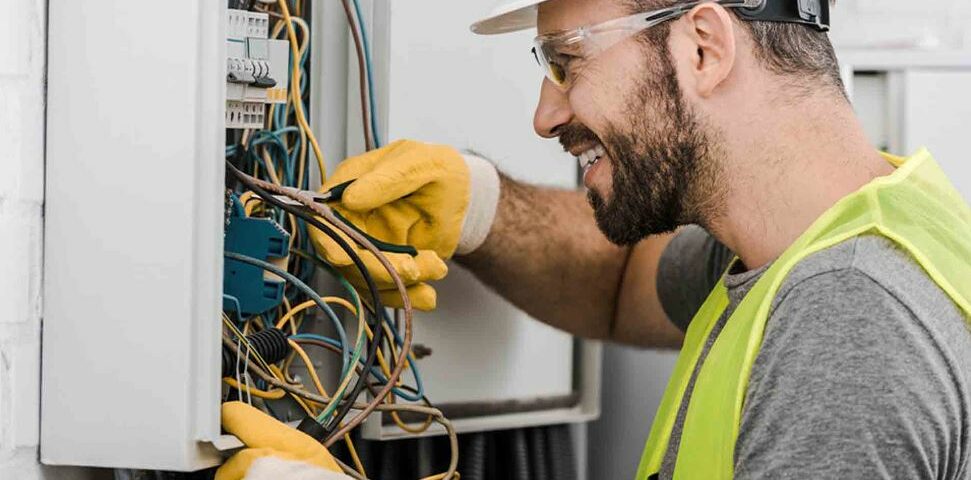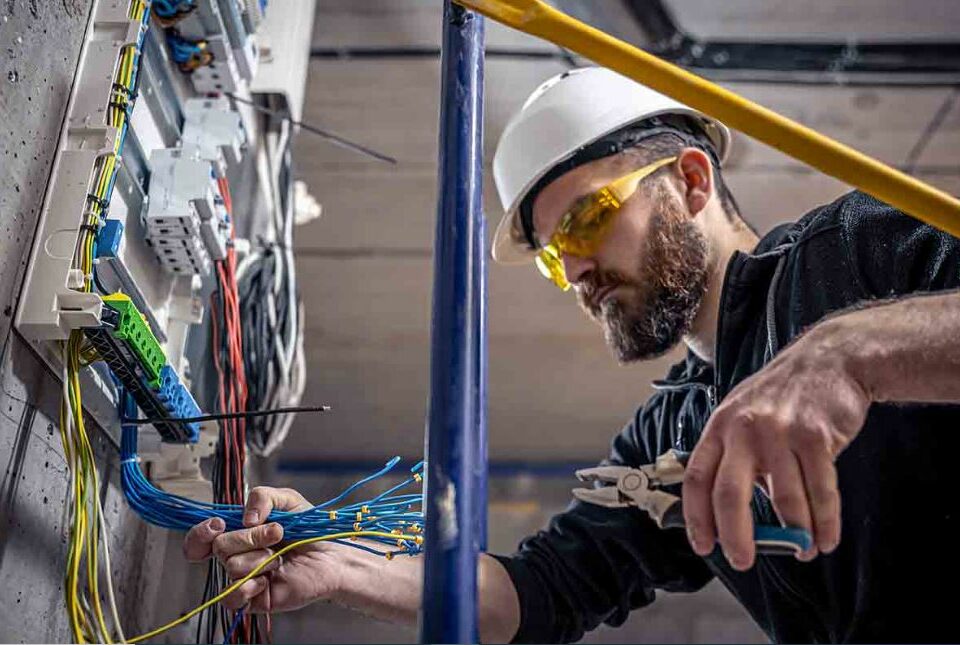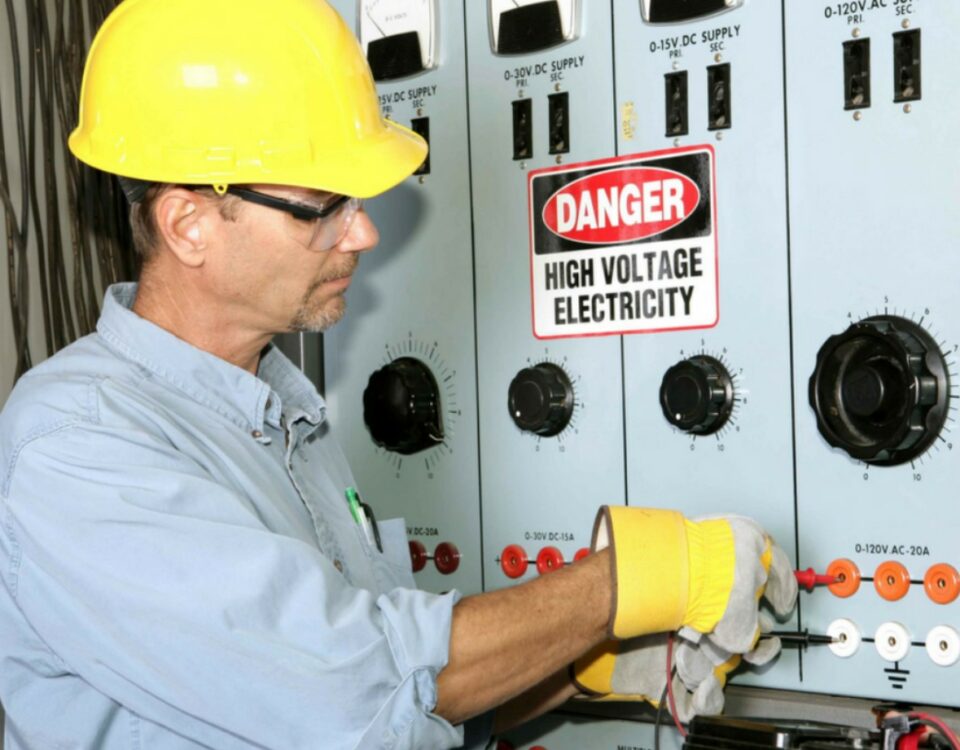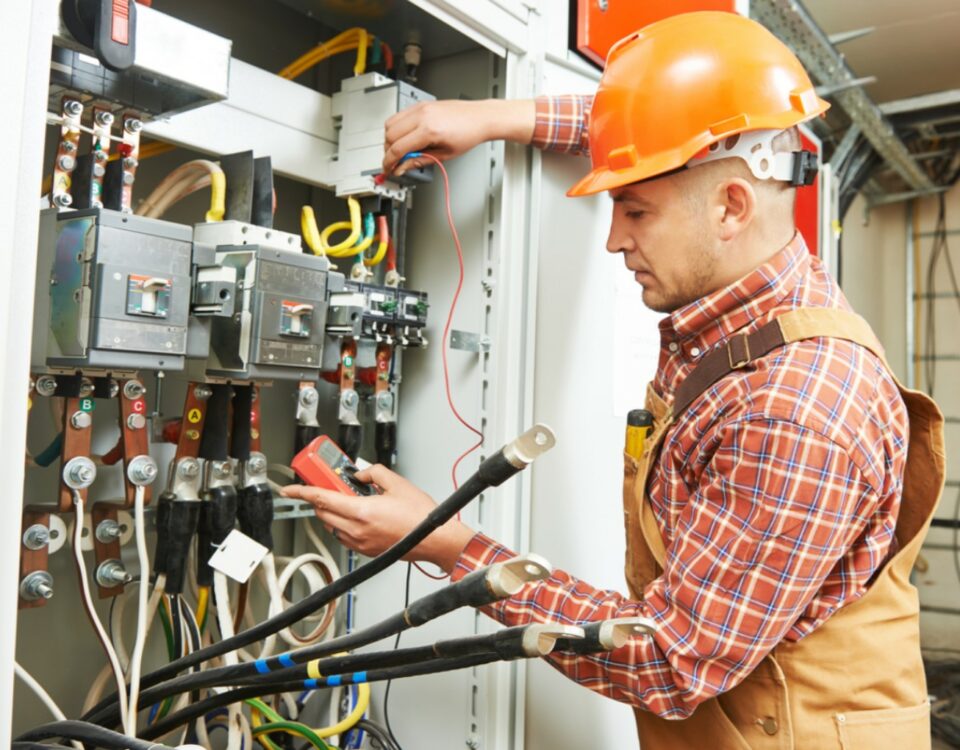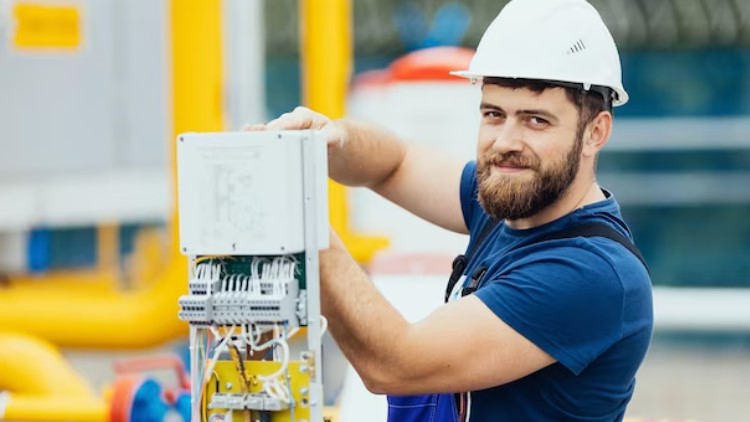What Is Smart Home Technology, And How Can An Electrician Help You Integrate It Into Your Home?

The Value Of Reliable Emergency Electrician Services
July 20, 2023
Wide Range Of Services Offered By Professional Electrician
July 20, 2023In the contemporary era, the advent of technology has permeated every aspect of daily life, revolutionizing even the most mundane tasks.
One pivotal development in this technological revolution is the concept of smart home technology.
This system integrates various devices and appliances within a residence, enabling them to communicate with each other and be controlled remotely via a networked device. Ranging from security systems to thermostats, lighting, and entertainment systems; it provides homeowners with unprecedented control over their domestic environment.
The integration of this sophisticated technology enhances convenience, efficiency, and security for inhabitants.
However, despite its apparent advantages, incorporating smart home technology into one’s domicile may seem like a daunting prospect for many homeowners due to its perceived complexity.
This is where the role of electricians becomes pivotal. As skilled professionals equipped with technical knowledge about electrical systems and devices, they can efficiently integrate these advanced technologies into homes while ensuring optimum performance and safety standards are met.
Furthermore, electricians play an integral role in troubleshooting any potential issues or malfunctions that may arise post-installation.
Therefore, understanding smart home technology along with recognizing the valuable contribution electricians make in implementing this tech-savvy infrastructure forms an essential discourse in modern living spaces.
Understanding Smart Home Technology
Smart home technology, an innovative subset of the Internet of Things (IoT), enables automation and centralised control over various household appliances and systems, thus revolutionising the way individuals interact with their living spaces.
This technology employs a network of interconnected devices that can be controlled remotely through applications on smartphones or other user-friendly interfaces.
The principle behind smart home technology is to facilitate more efficient use of energy, enhance safety measures, provide comfort and convenience while also allowing users to customise their environment according to personal preferences.
The concept of smart homes has been possible due to advancements in sensor technologies, artificial intelligence, machine learning algorithms and wireless communication protocols.
These components work together seamlessly to gather data about the user’s habits and preferences from various sources such as temperature sensors, security cameras or even social media profiles.
Such data is then processed by advanced analytics software integrated into the system which generates insights for automating tasks like adjusting temperatures based on weather forecasts or triggering alarms when unauthorised access is detected.
Adopting smart home technology represents a significant lifestyle transformation where an individual’s interaction with their environment becomes more interactive and personalised.
It seeks to offer a sense of belonging by not just serving as a passive habitat but actively participating in creating an optimally comfortable and secure living space tailored specifically for each resident.
From voice-controlled lighting systems that set mood instantly or automatic adjustment of thermostat before one arrives home after work; all these facets contribute towards enhancing overall quality of life while fostering a profound sense of being connected with one’s surroundings within the realm of digital age comforts.
Role of an Electrician in Integrating Smart Home Technology
Is it not fascinating to consider the pivotal role played by electrical professionals in enabling the seamless incorporation of advanced automation systems in domestic spaces? As technology advances, electricians’ roles have evolved beyond basic wiring and fixture installations. Today’s electricians are expected to be conversant with modern smart home technologies – a key element shaping contemporary lifestyles. They must understand how to integrate these automated systems into homes safely and efficiently, thereby simplifying lives while ensuring energy efficiency.
A glance at some of the tasks undertaken by an electrician in integrating smart home technology reveals their indispensable nature:
– Installation of automated lighting systems that can adjust brightness based on daylight availability or preset timings.
– Configuration of smart thermostats which learn from homeowners’ behaviour patterns, resulting in optimal energy usage.
– Setting up security systems including video doorbells and surveillance cameras which can be remotely accessed through smartphones.
– Wiring for speakers and other audio equipment as part of a whole-home audio system.
– Installation of interconnected devices like smoke detectors, carbon monoxide sensors, and alarm systems which form an integral part of home safety.
The task does not end with installing these devices. Electricians also perform regular maintenance checks to ensure optimum functioning of the installed systems. They are trained to troubleshoot issues related to these installations – be it hardware malfunctions or software glitches.
Moreover, they advise homeowners on utilizing these technological advancements effectively without overwhelming them, thereby making the transition towards smarter living smoother. These experts stay abreast with rapidly changing technological trends, keeping themselves updated about new products entering the market and regulations governing their use.
Without doubt, electricians play a crucial role in harnessing emerging technologies for domestic use. Adept at understanding intricate circuitry diagrams along with possessing comprehensive knowledge about local codes and regulations governing electrical work, they flawlessly merge traditional skills with modern-day requirements. Their expertise allows homeowners to enjoy all benefits associated with a smart home – convenience, security, energy efficiency – making them an essential contributor towards creating harmonious living spaces enriched by technological innovations.

